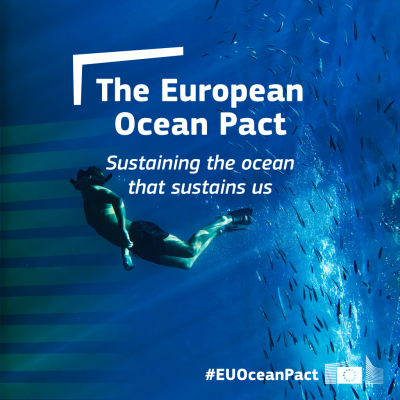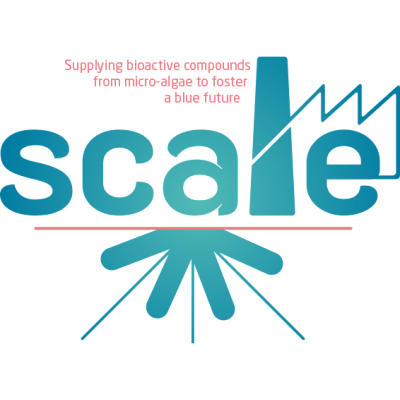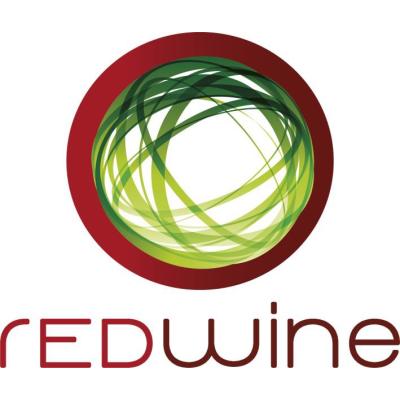
CBE JU welcomes the European Commission’s new strategic initiative announced today aiming to protect the health of our ocean and fully optimise Europe's maritime assets. The European Ocean Pact puts in place a reinforced governance framework for ocean management and, among other measures, promotes the blue bioeconomy, targeting sustainable algae and by-product valorisation from aquaculture. Over the past 10 years, CBE JU has invested in projects scaling up circular bio-based solutions in the aquaculture sector and preparing the ground for this large-scale initiative.
Amidst growing environmental, economic and security concerns, the newly launched European Ocean Pact lays the groundwork for an Ocean Union and leverages the immense potential for Europe's resilience, food sovereignty, energy supply and competitiveness.
The Pact will support six strategic priorities focussing on:
- Protecting and restoring ocean health
- Boosting the competitiveness of the EU sustainable blue economy
- Supporting coastal, island communities and outermost regions
- Advancing ocean research, knowledge, skills and innovation
- Enhancing maritime security and resilience
- Strengthening EU’s ocean diplomacy and international rules-based governance
Boosting Europe’s blue bioeconomy
Scaling up European algae production via the launch of a Blue Bioeconomy Innovation initiative by 2027, as well as a better valorisation of aquatic biomass waste are among key objectives of the Pact. The new EU Bioeconomy Strategy to be adopted by the end of 2025 is expected to expand on the circular bioeconomy approaches closing nutrient loops and recovering resources from marine waste streams.
The financing gap for blue economy innovation has been estimated to be in the range of €60-70 billion. Investing in the blue economy and supporting the start-ups, SMEs and scale-ups driving it are among the priorities of the Pact. The initiative foresees additional support to existing European Investment Bank initiatives in view of de-risking investments and enabling companies to scale up.
The Pact also lays out measures in view of protecting and empowering coastal communities and islands.
Scaling up bio-based solutions from aquaculture since 2014
CBE JU has so far funded some 20 projects advancing the use of microalgae, macroalgae or fish by-products and seafood side-streams for the production of bio-based applications in the food, feed, cosmetics and packaging sectors. Two of them are highly innovative first-of-their-kind flagship biorefineries:
- SCALE has built the world’s first fully integrated microalgae biorefinery to produce natural active ingredients of high nutritional value for the food supplements, feed, and cosmetics sectors. Led by a French small business Microphyt, this project aims to reduce the dependency on fossil‑based resources, replacing them with bio‑based alternatives.
- PROTEUS seeks to unlock the full potential of brown algae by optimising its harvesting and extraction techniques. The project's biorefinery will transform 100% of the biomass into bio‑based food and feed ingredients, personal care products and other industrial applications. This approach aims to sustainably boost Europe’s blue economy by improving circularity and creating new business opportunities.
Other CBE JU-funded projects advancing Europe’s blue bioeconomy are:
- REDWine transforms carbon dioxide emissions and wastewater from wine fermentation into a resource for cultivating Chlorella microalgae, which are then processed into sustainable ingredients for food, cosmetics, agriculture, and wine production. The project aims to reduce greenhouse gas emissions from wine production by over 30% while creating new revenue streams for producers.
- AQUABIOPRO-FIT worked on reducing waste in the seafood industry by transforming aquaculture and fisheries by-products like fish heads, backbones, and intestines, into high-quality proteins and bioactive compounds for use in food, feed, and health-promoting nutritional supplements.
- NENU2PHAR developed a sustainable value chain for bioplastics production from renewable resources like microalgae and bacteria, as a sustainable and biodegradable alternative to conventional plastics.




